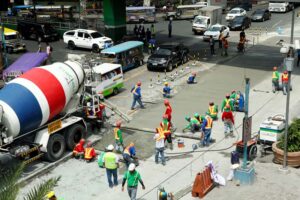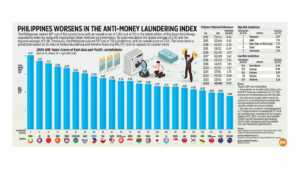Making it happen: Harmonizing efforts to promote investments
It is comforting to know that amid the political theatrics currently taking place, the Marcos Jr. administration is able to tone down the noise and keep its focus on what it deems more consequential in terms of materially improving the lives of the people.
Specifically, the pursuit of making the Philippines a sound investment destination, which has always been a daunting task.
It remains the goal, nonetheless. The benefits of investments, both foreign and domestic, are universally accepted. Investments provide a multiplier effect of economic possibilities. They bring jobs and income, increase people’s consumption power, give rise to economic activity, stimulate infrastructure development, and reinforce technological advancement.
The government has also recognized the Philippines’ key advantages: a powerful workforce of young, dynamic, and resilient Filipinos, abundant natural resources, and a strategic position at the center of the Indo-Pacific region.
More importantly, there is a recognition that simply having these strengths will not bring the investments we need for sustainable development and prosperity. There is a need to do more.
Just last month, President Ferdinand R. Marcos, Jr. signed the CREATE MORE (Corporate Recovery and Tax Incentives for Enterprises-Maximize Opportunities for Reinvigorating the Economy) Act, a move that aims to simplify the tax system and strengthen the country’s investment appeal in various priority sectors. There are also moves to institute greater transparency and accountability in the government, ensuring a stable and predictable regulatory environment, so that businesses can come, plan their operations, set up shop — and be assured that the same rules will apply, and that their venture will be shielded from any adverse, irrational, or whimsical policy swings.
Of course, while the pursuit of investments is a collaborative effort on the part of the government, the private sector, and civil society, there are key agencies at the helm of this endeavor.
These Investment Promotion Agencies (IPAs) act in concert while performing their nuanced functions in the greater effort toward presenting the Philippines as a premier investment destination and facilitating investments’ smooth entry to the Philippines.
The Department of Trade and Industry – Board of Investments (DTI-BoI) promotes the Philippines through its “Make it Happen in the Philippines” campaign, which aims to generate Foreign Direct Investments (FDIs) specifically focused on key industries that have the most potential for foreign investments.
The DTI-led Inter-Agency Investment Promotion Coordination Committee (IIPCC) is currently formulating the Foreign Investment Promotion and Marketing Plan (FIPMP) to ensure that there is a single investment promotion framework and strategy throughout the country.
The establishment of ecozones is also an important strategic policy to boost export promotion, attract FDI, and create employment opportunities for the local labor force. In this respect, the Philippine Economic Zone Authority (PEZA) plays a central role.
As of last October, PEZA had approved a total of P123.76 billion worth of projects since January. In October alone, the PEZA Board approved 19 projects with aggregate investments amounting to P7.87 billion, consisting of eight projects in manufacturing, eight in information technology, two in ecozone development, and one in ecozone logistics.
These projects are expected to boost Philippine exports by $3.08 billion annually and generate about 40,733 jobs. This year, job creation in PEZA ecozones have increased by 43% from 28,521 jobs generated in the same period last year.
On Nov. 26, the Stratbase Institute, in collaboration with the DTI-BoI held a roundtable discussion with representatives of IPAs to gain insights and recommendations which the Philippines can implement to draw in more investments to the country.
Empowering IPAs is crucial because they play a key role in facilitating the seamless entry of foreign investments into the country. Collaborating with these agencies and aligning them with the “Make it Happen in the Philippines” campaign could significantly improve the delivery of the unified investment message we are putting out to the rest of the world. We also want this message to be consistent across all regions in the archipelago.
During the roundtable event, discussions revolved around initiatives to attract investments that will revitalize the manufacturing sector, produce goods not just for export but also for the domestic market, leveraging the country’s young workforce to foster innovation, enhance productivity, and generate quality jobs.
The streamlining of administrative processes, prioritization of strategic infrastructure development, use of emerging technologies, and adherence to environmental responsibility were touched upon as well.
The conversations also brought out the need to have a stronger strategic head or government body, which will focus on and consistently lead a unified effort with all IPAs in creating an inventory of investment data sources, harmonizing marketing and promotions programs, and implementing activities involving all interested agencies.
Competition for FDI is fierce around the world, with countries vying to attract potential foreign investors to spur economic growth. For a developing country like the Philippines, FDI is not only desirable but necessary in order to achieve sustainable development, job creation, and technological advancement.
Thus, the manner in which we promote our investments is important. A coordinated approach among IPAs will get the message across effectively and show that the Philippines is serious and resolute in attracting investments — and keeping them.
Victor Andres “Dindo” C. Manhit is the president of the Stratbase ADR Institute.




